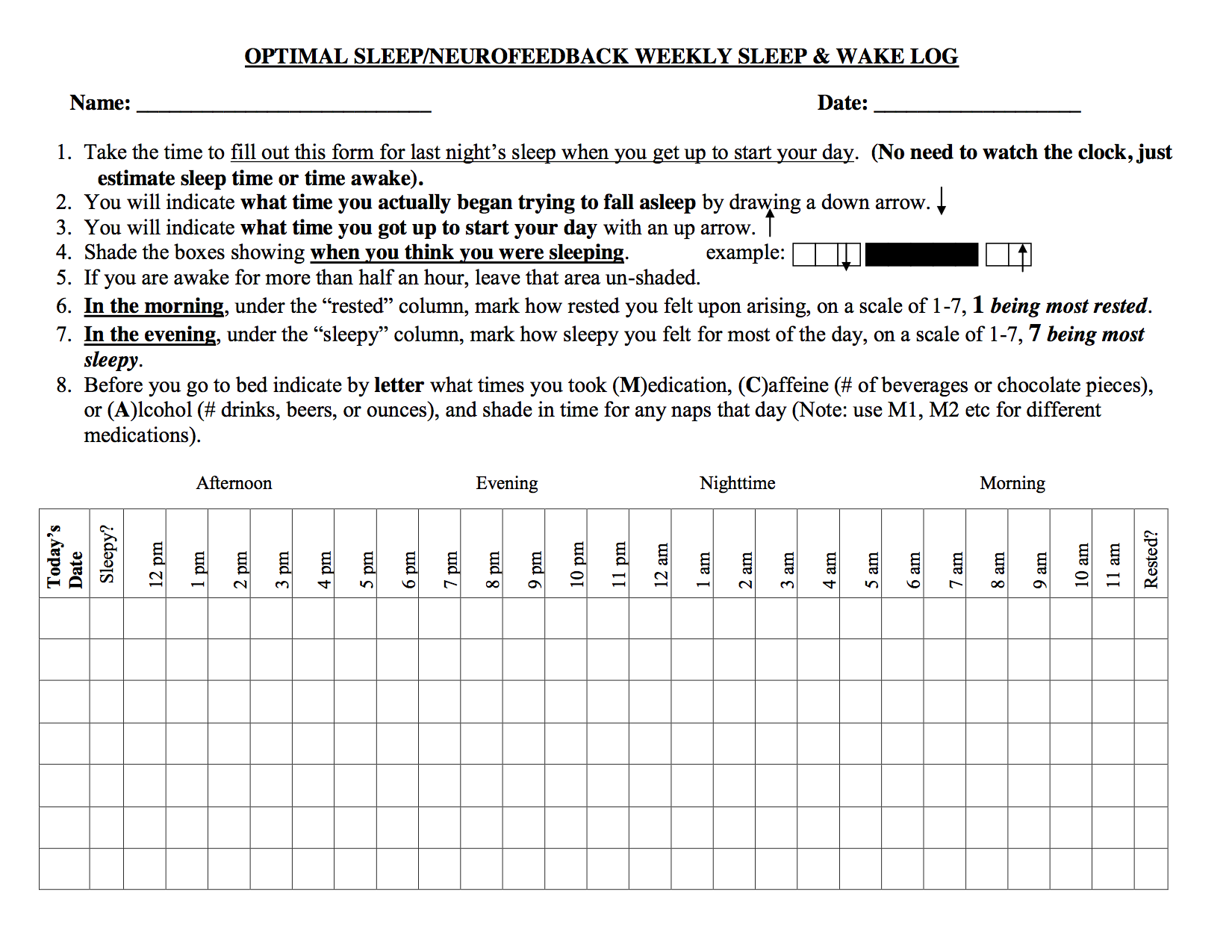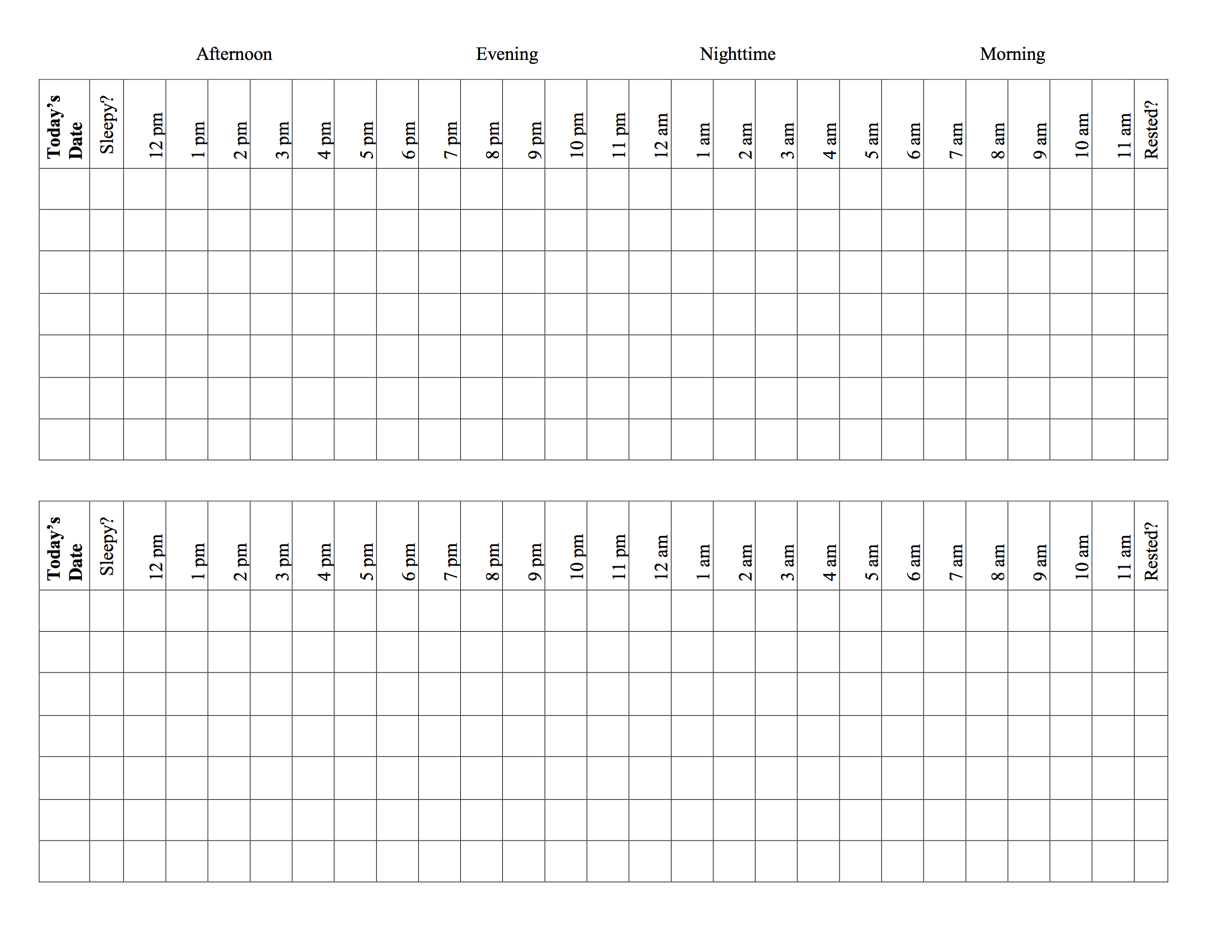Sleep Log
Keeping a diary may be key to helping you and your health care provider diagnose and improve your sleep. You may collect information about :
- The time you went to bed and woke up.
- How long and well you slept.
- When you were awake during the night.
- How much caffeine or alcohol you consumed and when.
- What/when you ate and drank.
- What emotion or stress you had.
- What drugs or medications you took.
- Exercise you had during the day and what time.
Some of that information includes date, bedtime, waking up time, duration of sleep, number of times you wale up at night and quality of sleep.
The following is an example of a useful a sleep log to help.

Understanding about dreams: Sometimes we wake up more tired than when we went to bed. There are nights that we don’t even want to go to sleep because of our afraid of our dreams. Understanding about them may help get over this problem.The fact is we don’t know for sure why we dream. Some scientists say dreams are necessary to maintain our mental, emotional and physical health.
There are studies showing the importance of dreams to our health and well-being. In one study, researchers woke subjects just as they were drifting off into REM sleep. They learned that those who were not allowed to dream experienced:
- Increased tension
- Anxiety
- Depression
- Difficulty concentrating
- Lack of coordination
- Weight gain
- Tendency to hallucinate
Many experts say that dreams exist to:
- Help solve problems in our lives
- Incorporate memories
- Process emotions
If you go to bed with a troubling thought, you may wake with a solution, or at least feel better about the situation.
It is suggested to clear our mind and deal some of our problems before bedtime.
Sigmund Freud believed dreams are a window into our subconscious. He believed they reveal a person’s:
- Unconscious desires
- Thoughts
- Motivations
Freud thought dreams were a way for people to satisfy urges and desires that were unacceptable to society.
Perhaps there is merit with all these theories. Some dreams may help our brains process our thoughts and the events of the day. Others may just be the result of normal brain activity and mean very little, if anything. Researchers are still trying to figure out exactly why we dream.
